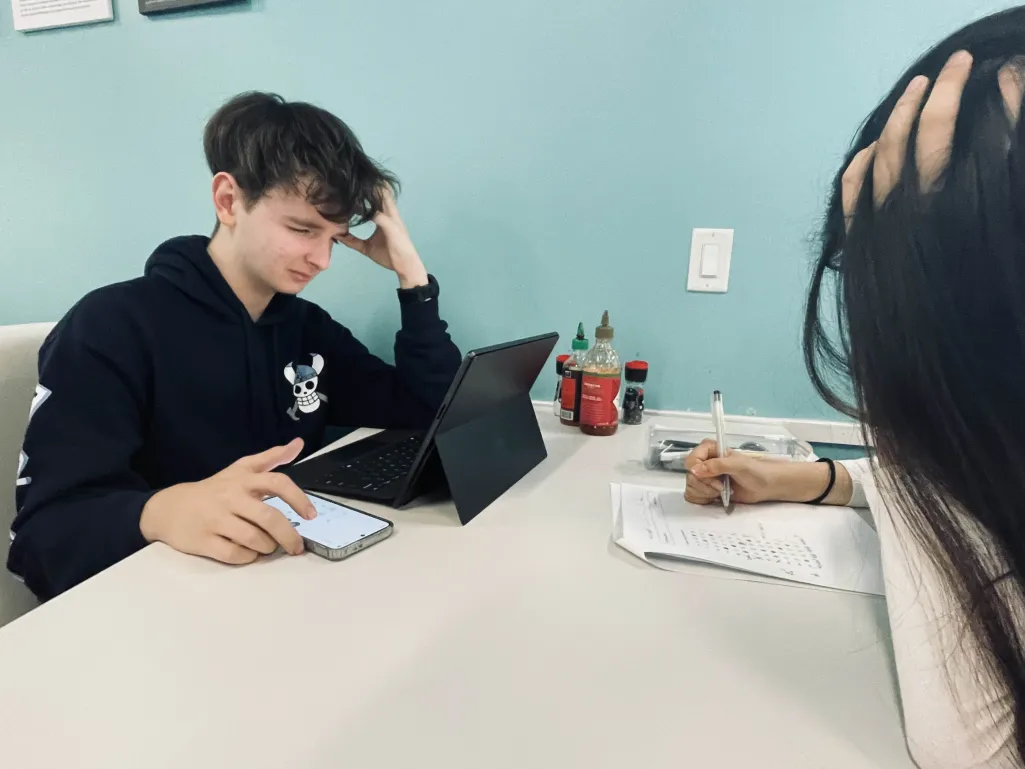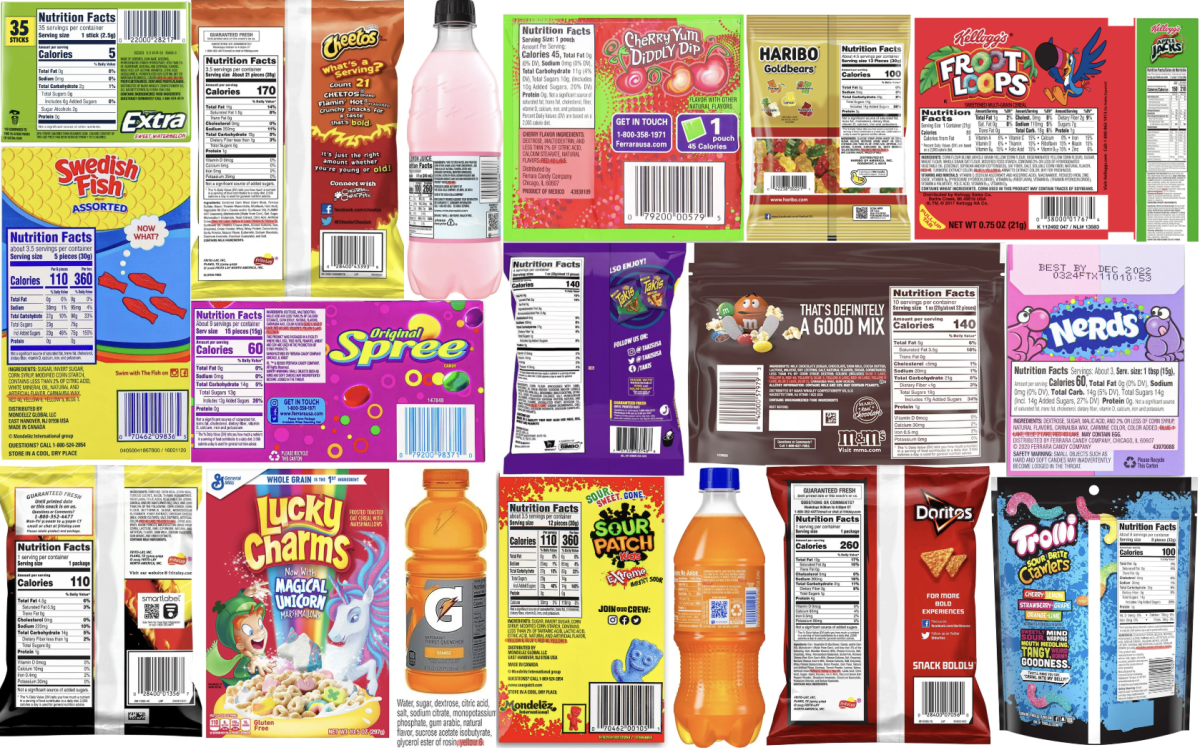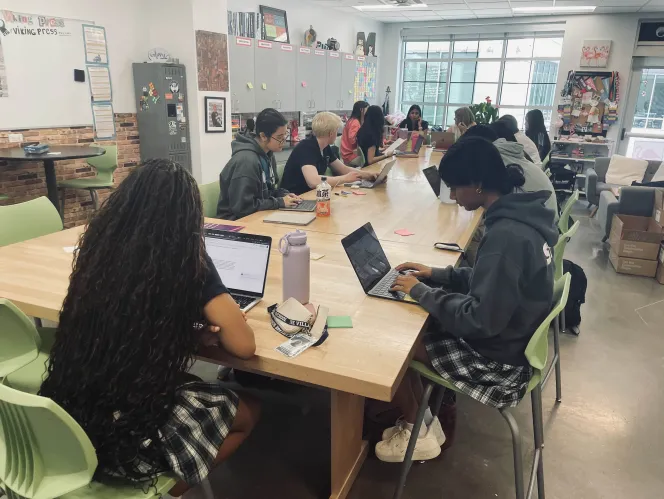The Illusion of Influence: How Social Media Promotes Superficial Fame Over Substance
57% of GenZers are aspiring to be an influencer for their jobs, a study by CNBC found, but what promotes this? Scroll, like, repeat–the endless media consumption cycle that has completely rewired how we measure beauty, success, and money. More often than not, teenagers are going to recognize a TikTok dance or trend before they can recognize a famous novel. In the passing years, the hottest and top career aspiration has grown to be an “influencer.” Not because they want to influence the world or anything selfless like that, but because of the aesthetic and money that comes from their 15 minutes of fame.
Gone are the days when people worked hard, had real talents, or had groundbreaking achievements. In this new age of social media, influencers are no longer earned but engineered. All it can take is a controversial opinion, a ten-second dance trend, or a dress that takes you to stardom overnight bypassing the traditional gates of entertainment. Unlike actors, models, or musicians who earned their place in the industry, the new age influencers got their place by pure virality.
Behind every “Get ready with me” there is an algorithm designed to prioritize engagement, not depth. Social media thrives on quick attention, and the systems are fine-tuned to promote quick emotional reactions, whether it’s envy, anger, or awe. It promotes negative reactions because that’s what keeps people watching, interacting, and questioning why their lives aren’t picture-perfect like the women and men that they follow.
Social media hasn’t changed who we admire, but what we consider worthy of trending. A Generation that grew up with a phone in their hands now measures your worth based on how many likes your last post has gotten. Teens and young adults feel pressured to keep up with lavish lifestyles that most people cannot afford, leading into debt and promoting the “buy now pay later” life.
Influencers love to preach the “hustle”, for example, all over Tik Tok people seem to be selling “hustle” culture, showing people how to get “easy money”. But more often than not there is no hustle behind their work. Their version often skips the grind. Nowadays, it’s hard to differentiate “Nepotism” babies, and industry plants. For every celebrity that “made it”, there are thousands who have not, yet no one ever speaks about them. Most frame their success as purely self-made while ignoring pre-existing wealth and connections in the industry. All in hopes of promoting the attractive narrative: “If I could do it, so can you!” However many of these reasons may vary for why people want to be an influencer, “Some are very excited about the idea of celebrity, fame and money,” says Victoria Bachan, President of Talent at influencer agency Whalar. states in the CNBC article previously mentioned. Helping push the narrative that being a celebrity or a social media influencer is all about brand deals and money.
Here at The Village School, social media is a driving force, whether it’s posting about teams, sharing about upcoming events, or even congratulating our students on their awards. But how do the students really feel? Many of the high school students are already active on social media and post their own vlogs and TikTok. In a school such as The Village School, where students are pushed to work hard, is social media really a job opportunity? We decided to gather two points of view from our very own students. Building an audience teaches marketing, branding, and content creation skills that translate to real jobs. Many influencers turn their passion into a full-time income.
There is also a risk factor as viral fame is unpredictable. Education provides stable career options that social media can’t guarantee. The verdict? Social media offers exciting opportunities, but shouldn’t replace traditional education.
As harmful as superficial fame can be for content creators, it is even worse for those viewing as the people creating the content at least know that they are advertising falsity but the people viewing can get low self-esteem by viewing someone’s ”perfect’’ life. “I think influencer culture is harmful because it sets unrealistic standards and creates false impressions,” said sophomore at The Village School, Constantina Carastosis. “I think there is always pressure to have the perfect life with the perfect clothes and looks etc. I just feel content with my life and try not to compare myself, comparison is the thief of joy.’’ Said Carastosis. Influencers have and give a lot of pressure to maintain a perfect image with fake lifestyles to deceive people using filters and Photoshop, but none of this is real and often leaves both the influencer and the influenced with feelings of great dissatisfaction. This is why the influencers’ legacies are disposable, they get famous for one thing but it is forgotten as it is not the most meaningful contribution to the world. Society should strive to advertise and create an environment of lasting legacies built on skill vs something superficial.
Fake narratives are the reason that there are a lot of people trying to push back against influencers and influencing, people may think that their life is not perfect enough to film so they edit it and the influenced may know it is all a lie and hate that influencers lie to make content but a good balance has to be found between superficiality and depth something real vs something fake in all videos. Many content creators lose the flow and just begin to focus more on views and what they could or should do to get more views rather than what they want to post.
Many creators begin with pure creativity, but the pull of engagement often reshapes their definition of success. “When I started, it was about creativity. Although my main platform was TikTok, my feeling of ‘success’ definitely came from the amount of engagement I received on my videos. In my account’s prime, I would average about 75k views a video, and my viral ones would receive 300-400k views. However this isn’t to say I didn’t enjoy making the videos that received less engagement, but the interactions made me want to create more and more.’’ Said senior at The Village School Cecilia Chunn. This is what she defined as success even though she started to use this as a creative outlet. This truly demonstrates the quick shift in mentality that the media manipulates onto both influencers and the influence the whole topic of what it means to be an influencer is instantly shifted to how you are perceived versus what you actually do.
Influencer culture prioritizes virality over substance, rewarding superficial fame while leaving audiences chasing impossible standards. But fame built on perception is fleeting. Today’s trend is tomorrow’s forgotten moment. We must rethink who we idolize, valuing real impact over empty popularity. True influence isn’t measured in followers but in lasting impact. Fame is no longer about what you do, it’s about how you’re perceived. And what’s seen is rarely real.
Resources:
https://www.cnbc.com/2024/09/14/more-than-half-of-gen-z-want-to-be-influencers-but-its-constant.html#:~:text=More%20than%20half%20of%20young,survey%20of%202%2C204%20U.S.%20adults.









